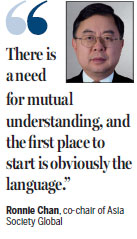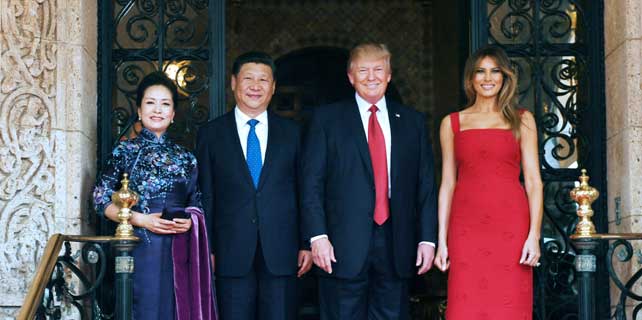In US, demand surges for Mandarin lessons
As more than 1,000 Chinese language teachers gathered in Houston to exchange the latest ideas in teaching, education leaders from the United States and China recounted the achievement of Chinese learning in the US over the past decade on the opening day of the 10th National Chinese Language Conference on Thursday.
Chinese learning in the US has made tremendous progress, said Linda Liu, vice-president of the US nonprofit College Board. "Not only has the interest in learning Chinese grown, but also the proficiency of understanding Chinese language and culture has grown with it," Liu said.
Liu said that College Board launched the AP (advanced placement) Chinese Language and Culture course in 2007. Since then, the number of AP Chinese teachers has grown from fewer than 200 to more than 800 today. The number of US students participating in AP Chinese has quadrupled in the past decade. "That's amazing progress," Liu said.
During the past decade, College Board deepened collaboration with China's Confucius Institute Headquarters (Hanban), brought US administrators to China and established district-level Confucius classrooms, Liu said.
"Since the first Chinese guest teachers arrived in the US in 2007, we have had nearly 1,200 guest teachers bringing Chinese lessons to over 300 school districts in the US," Liu said.
Jing Wei, deputy director-general of Hanban, echoed Liu's view. She pointed out that when the first National Chinese Language Conference was held in 2008, it was predicted that by 2015, 120,000 would be learning Chinese in US educational institutions with 1,200 Chinese teaching positions. The reality exceeded the expectations.
"Last year, there were nearly 400,000 Chinese language learners and more than 1,500 Chinese language teachers in US education institutions," Jing said. Hanban also brought about 6,000 US students to China to learn Chinese and about Chinese culture.
Jing, who toured the Houston Mandarin Immersion School earlier, said she was very impressed with the enthusiasm of Chinese learning displayed by the students and parents.
Ronnie Chan, co-chair of Asia Society Global, and David Leebron, president of Rice University, shared their personal stories to illustrate how important language learning is in understanding the other culture.
"For the first time in 2,000 years, the West and East have to coexist as strong nations. There is a need for mutual understanding, and the first place to start is obviously the language," Chan said.
mayzhou@chinadaily.com.cn

















